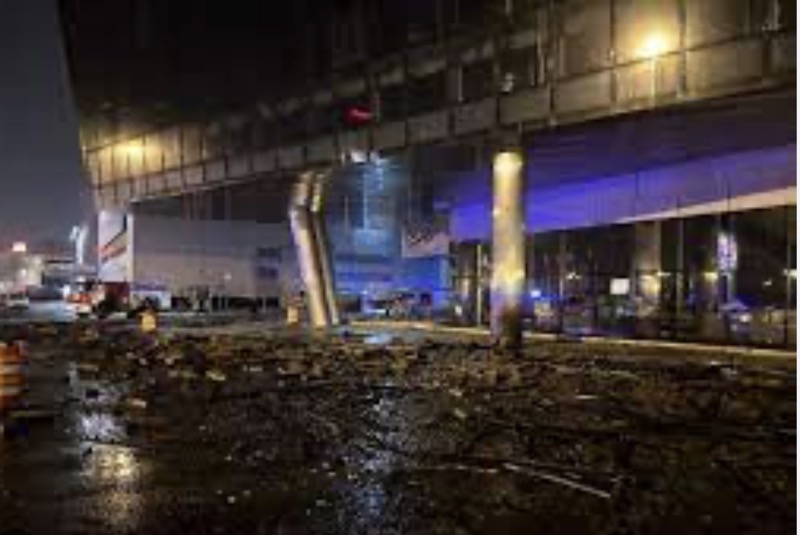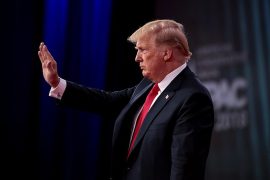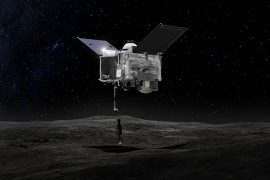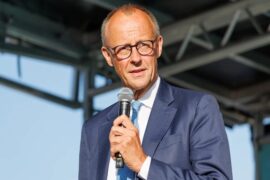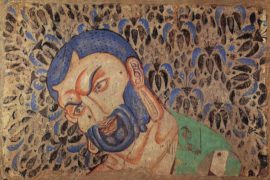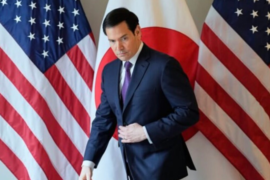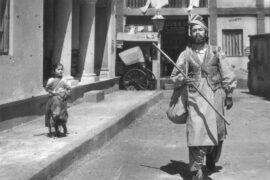On Friday, 22 March 2024, Crocus City Hall, Moscow, was gearing up for a concert by Picnic, a popular rock back from the Soviet era. The entertainment venue, in the West of the sprawling Russian capital, was brimming with people.
Suddenly, five gunmen armed with automatic weapons, dressed in combat fatigues, entered the concert hall and opened a volley of gunfire, shooting indiscriminately and killing people at point-blank range. On hearing the shots, people panicked and ran, colliding with each other, causing a stampede.
The attackers also detonated explosives that set off a massive blaze, covering almost 139,000 square feet. Promptly, Russian authorities brought in helicopters while firefighters on the ground doused the fire. Meanwhile, Russia’s Emergency Situations Ministry firefighters helped 100 people escape through the building basement and launched rescue operations for people trapped on the roof. Finally, the fire was brought under control on Saturday.
At least 133 people died. More than 100 people were injured. It was one of the worst attacks to hit Russia in decades.
Soon, Russia’s Investigative Committee, the country’s top criminal investigation agency, started investigating a ‘terrorist’ attack. Moreover, Rosgvardia, the National Guard, was deployed in search of the gunmen.
Within hours, FSB security service detained 11 people, including four people directly involved in the attack. Two suspects were chased and arrested in the Bryansk region, 340 kilometres Southwest of Moscow. Other suspects fled into a forest nearby.
Within hours of the attack, the Islamic State Khorasan Province (ISKP) claimed responsibility for the attack, stating that its ‘fighters’ attacked Moscow, ‘killing and wounding hundreds and causing great destruction to the place before they withdrew to their bases safely.’
Before the attack, the US and five other nations shared intelligence with Russia, warning them that ‘extremists’ planned to attack ‘large gatherings’ in Moscow. The US has also issued an advisory to American citizens, asking them to avoid going to crowded places. Soon, the US media also published reports that ISKP had claimed responsibility for the terrorist attacks in Russia.
This is not the first attack. Earlier, Russia’s FSB foiled an attack on a Moscow synagogue by the Islamic State Khorasan. In 2015, ISIL planted a bomb in a Russian passenger plane, which exploded over the Sinai desert, killing all 224 people onboard the aircraft. The Islamic State has also carried out multiple attacks from 2016-2019. In 2022, they bombed the Russian embassy in Kabul. However, Russia managed to foil several attacks between 2021-23.
The Islamic State Khorasan, established in Afghanistan circa 2015, gained strength post-2021 when the United States withdrew from Afghanistan. Now, thousands of ISIS militants operate in all of Afghanistan’s 34 provinces. In the last twelve months, they had planned 21 attacks across nine European countries.
Speaking to CNN, Michael Kugelman, Director of the Washington D.C.-based Wilson Centre, said that the Islamic State Khorasan Province ‘sees Russia as being complicit in activities that regularly oppress Muslims.’
Warning about the group’s resurgence, he said that the Moscow attack is a ‘wake-up call for those who think that it is time to move away from focusing on Islamic State. We must not assume that a particular terrorist group is dead and not a threat anymore. This happened with al-Qaeda some years ago, and a number of policymakers were saying the threat wasn’t there. And now, there is a tendency to assume that the Islamic State is not a threat anymore. Indeed, the parent Islamic State lost its territory in the Middle East that it had for many years. And we hadn’t heard as much from the group as we used to. Large global terrorist organisations may be struggling, but they have regional affiliates that manage to remain strong. This was a mass-casualty attack. The Russians were not able to stop it. This could embolden the groups – both the parent Islamic State as well as the IS-K, and it could promise additional attacks, whether in Russia or elsewhere.’
But why would the Islamic State attack Russia?
The Islamic State cites three main reasons—first, Russia’s military occupation of Afghanistan in the 1980s. Second, a history of Russia’s brutal assault on Muslim communities, particularly in the North Caucasus. Third, Russia’s support for Bashar al-Asad in Syria.
Putin and the Russians have a completely different version. They believe that ‘the American explanation for the Moscow terror attack doesn’t add up.’ The day after the attack, Russian President Vladimir Putin, in a televised address, directed the blame towards Ukrainians.
Moreover, the Editor-in-chief of Russia’s state-owned RT, Margarita Simonyan, posted footage of the interrogation of one of the suspects in which he claims he was promised 5000 rubles (about $5400) and that his handlers instructed him to ‘kill all people there….doesn’t matter who.’ The suspect also claimed that the terrorist act was organised on Telegram and that an ‘unknown person’ provided weapons to them.
The timing of the attack is significant; it comes just after Vladimir Putin got ‘elected’ as Russia’s President for a further six-year term. Regardless of the blame game, Putin is likely to launch a brutal campaign of a crackdown on Russia’s Muslim communities, particularly in the North Caucasus and beyond.
The Moscow attack shows that both ISIS-K and al-Qaeda have gained strength in Afghanistan under the Taliban. It is a matter of grave concern, and turning away from Afghanistan will make matters worse, leading to the mushrooming of terrorist capsules globally.
-30-
Copyright©Madras Courier, All Rights Reserved. You may share using our article tools. Please don't cut articles from madrascourier.com and redistribute by email, post to the web, mobile phone or social media.Please send in your feed back and comments to [email protected]

